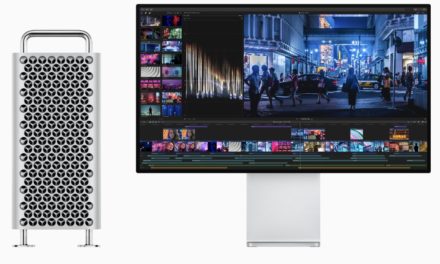By Greg Mills
Sony just dropped prices on it’s e-readers to keep parity with Amazon and Barnes & Noble’s devices. The rush to drop prices is all about customers going to iPad, in mass.
When you compare the Sony Daily Reader at US$300, the Kindle at $189 and the Nook at $199, the color, multipurpose iPad is more expensive, but well worth the additional money. When Microsoft was able to actually lay hands on an iPad, they pulled the plug on their slate computer as they knew they couldn’t compete. Amazon, Sony and Barnes and Noble didn’t have the luxury of pulling the plug gracefully, as they were already in the market place.
Apple realized the book reader devices that preceded iPad were flawed in that they didn’t have all the functions consumers wanted. First is color. I saw a guy at a Chinese restaurant reading a book a month or so before iPad came out. I asked him how he liked his Kindle. He told me it was a neat way to buy and read books. He showed me the cheesy black and white screen and the text he was reading. It was certainly readable. The issue is not that you can actually read a book on such a device, it is that when you get that far, why not go further and do so much more?
Apple was not the company that invented music on the go in a small format. Sony came up with the Walkman, the iPod of my childhood. While kids of that era would have been glad to have owned a Walkman, there was nowhere near the mania that the iPod has generated. It was a simpler period in our history and things went slower.
If Sony put out a new Walkman it would be another color, more songs, longer battery life — similar features that we see today. No one would camp out to buy the new Walkman; you would simply buy the one in stock at your electronics store.
The super charged “latest thing” mentality of today, has been to some extent, been fostered by the likes of Apple’s marketing, TV and the press. The competition in the rest of the world is also getting into the trend of wanting the “early adopter” mantle. Fortunes rise and fall on trends so volatile the cool Kindle of a year ago is virtually junk in the new iPad world of today. Prices falling to break even or lower on competitors slate computers spells disaster for them and just a bit more blood in the water for Apple.
The Swiss Army Knife has a number of blades and other devices that can be rotated out to be useful in more situations. This concept has been long the format for computer program development. The problem is that making computer programs obsolete by adding new functions gets old after a while.
We saw bloated memory pigs flow from Microsoft over the years. How many times have you been frustrated that unwanted features in Microsoft programs so complicate the common uses of a program that the early versions of that program seem better? Complexity and a steep learning curve are a problem.
Piling on feature no one wants has never been the Apple approach. Clearly, Apple does add features but they are generally features that are useful. A balance has to be found and the minimalist approach of Apple has been successful as everything Apple puts out is streamlined to avoid feature bloat and usefulness over complexity.
This is not easy or automatic and requires a strong hand to achieve. The dictator at Apple demands that everything that goes out the door passes over his desk. You don’t want to be called in to explain something to Mr. Jobs. You just get it right or wear a flack jacket to work.
If nothing else, the market place is choosing the iPad. I expect the other eBook players to phase out their products and concentrate on selling books through Apps on iPad. The book reader Apps on iPad are incredibly cool, and the other features of iPad make it a compelling product. The lower-than-expected price of the iPad caught the competition sleeping at the switch.
But, competition is coming. Apple maintains a lead time that allows it to innovate the next step while the competition is struggling to catch up with the current product release. That is a large part of the reason behind the secrecy at Apple. Why help the competition with tips on what is coming from Apple?
As I have maintained, I expect digital download content to be going down in price, as market forces are applied. We see emagazines and ebooks getting cheaper. I think movies and music are also going to tend to go down in price. I see going “paperless” and “media-less” as a market force issue. Why pay the same price for a download as a movie DVD?
My daughter pushed me to download a chipmunk movie the other day. When her mother found out we paid $5 to rent the download for a 24-hour period she exclaimed, “That is a waste, don’t do that again, you can buy the DVD for $15 and own it.” Would she have felt this way if the rental had been $3 or $2? I don’t think so.
(Greg Mills is currently a Faux Artist in Kansas City. Formerly a new product R&D man for the paint sundry market, he holds 11 US patents. He’s working on a solar energy startup using a patent pending process of turning waste dual pane glass into thermal solar panels used to heat water. Married, with one daughter still at home, Greg writes for intellectual web sites and Mac related issues. See Greg’s web sites at http://www.gregmills.info . He can be emailed at gregmills@mac.com)




